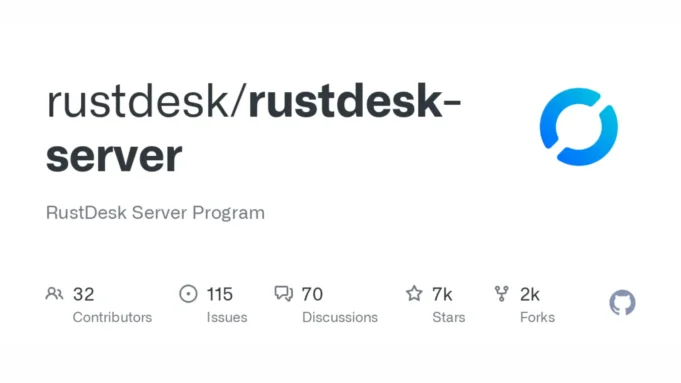RustDesk is a free, open-source remote desktop solution that allows users to connect to and control remote devices securely.
To enhance its functionality and provide self-hosting capabilities, RustDesk offers a server component called RustDesk Server.
This article explores the tools and functions of the RustDesk Server, including its components, deployment options, and key features.
Components Of RustDesk Server
RustDesk Server comprises three primary binaries:
- hbbs (Host-Based Backend Server): Acts as the ID/Rendezvous server for managing device connections.
- hbbr (Host-Based Backend Relay): Functions as the relay server to handle data transmission between clients when direct peer-to-peer (P2P) connections are not possible.
- rustdesk-utils: A command-line utility for generating encryption key pairs and performing other administrative tasks.
These components enable users to host their own RustDesk infrastructure for secure and private remote desktop connectivity.
RustDesk Server can be deployed in several ways:
- Manual Build: Advanced users can manually compile the binaries using Rust’s
cargobuild system. - Docker Containers: Prebuilt Docker images are available for easy deployment. These images support multiple architectures (e.g., amd64, arm64v8) and can be run using
docker runordocker-compose. - S6-Overlay Images: These Docker images include both
hbbsandhbbrwith S6-overlay for process supervision, simplifying container management. - Debian Packages:
.debpackages are available for Ubuntu and Debian distributions.
Key Features And Functions
- Self-Hosting: RustDesk Server allows users to host their own server, ensuring complete control over data privacy and security.
- Encryption: The server supports encrypted connections using key pairs generated by
rustdesk-utils. Users can configure encryption settings via environment variables or Docker secrets. - Customizability: Environment variables such as
RELAY,DB_URL, and bandwidth limits allow fine-tuning of server behavior. - Scalability: The server supports both P2P connections and relay-based communication, ensuring flexibility in various network conditions.
- Cross-Platform Compatibility: RustDesk Server works seamlessly across different operating systems and architectures.
RustDesk Server empowers users to create a secure, private remote desktop environment tailored to their needs.
With its open-source nature, flexible deployment options, and robust features, it is an excellent choice for individuals and organizations seeking control over their remote desktop infrastructure.
















